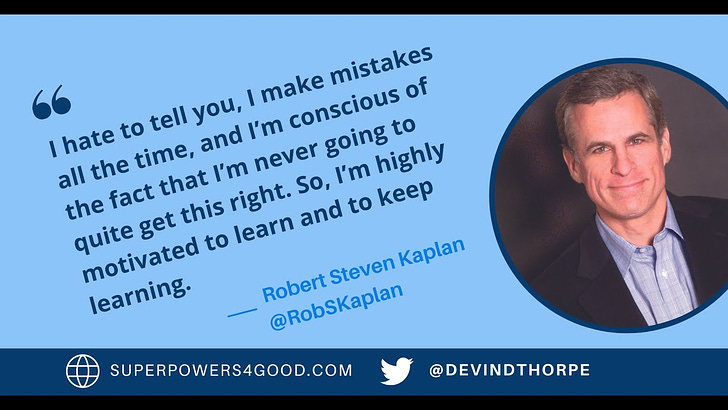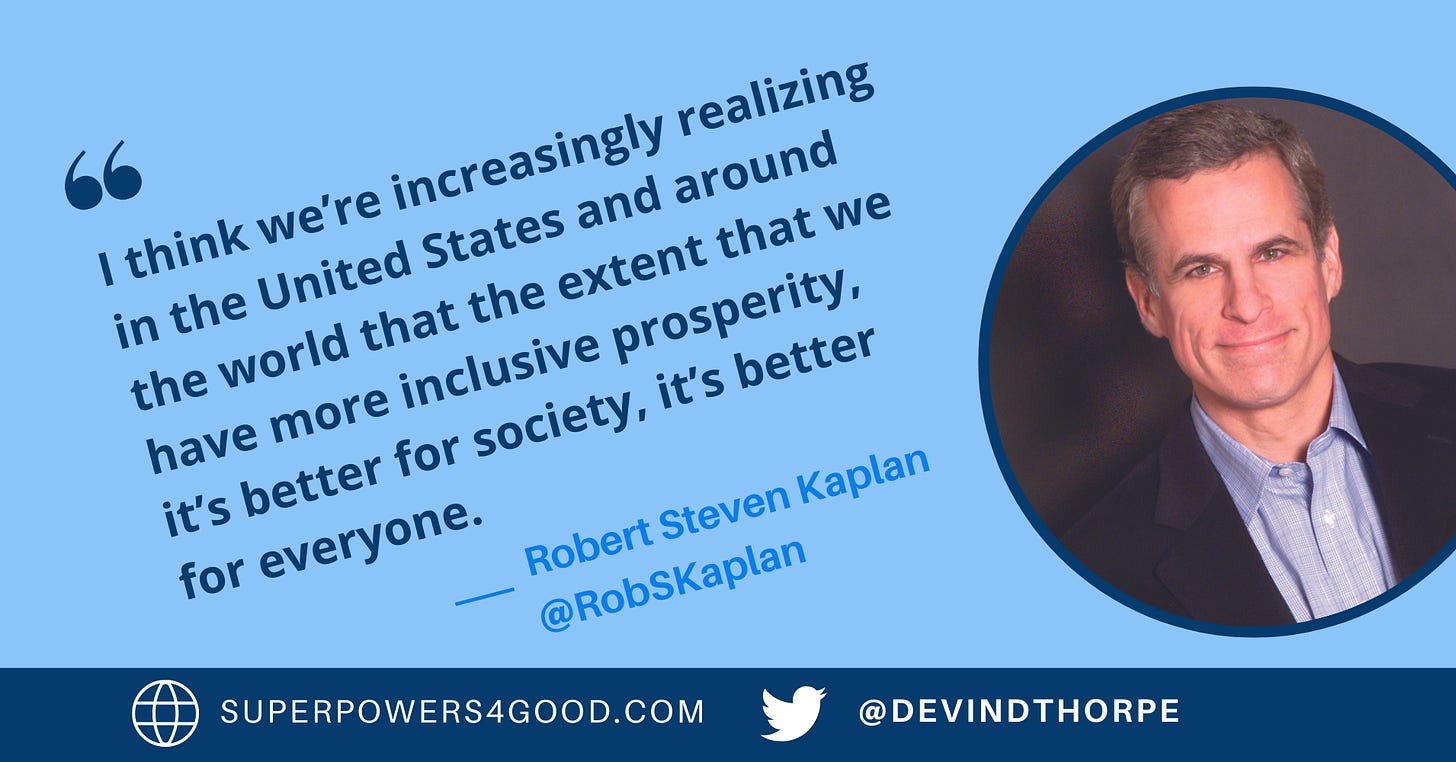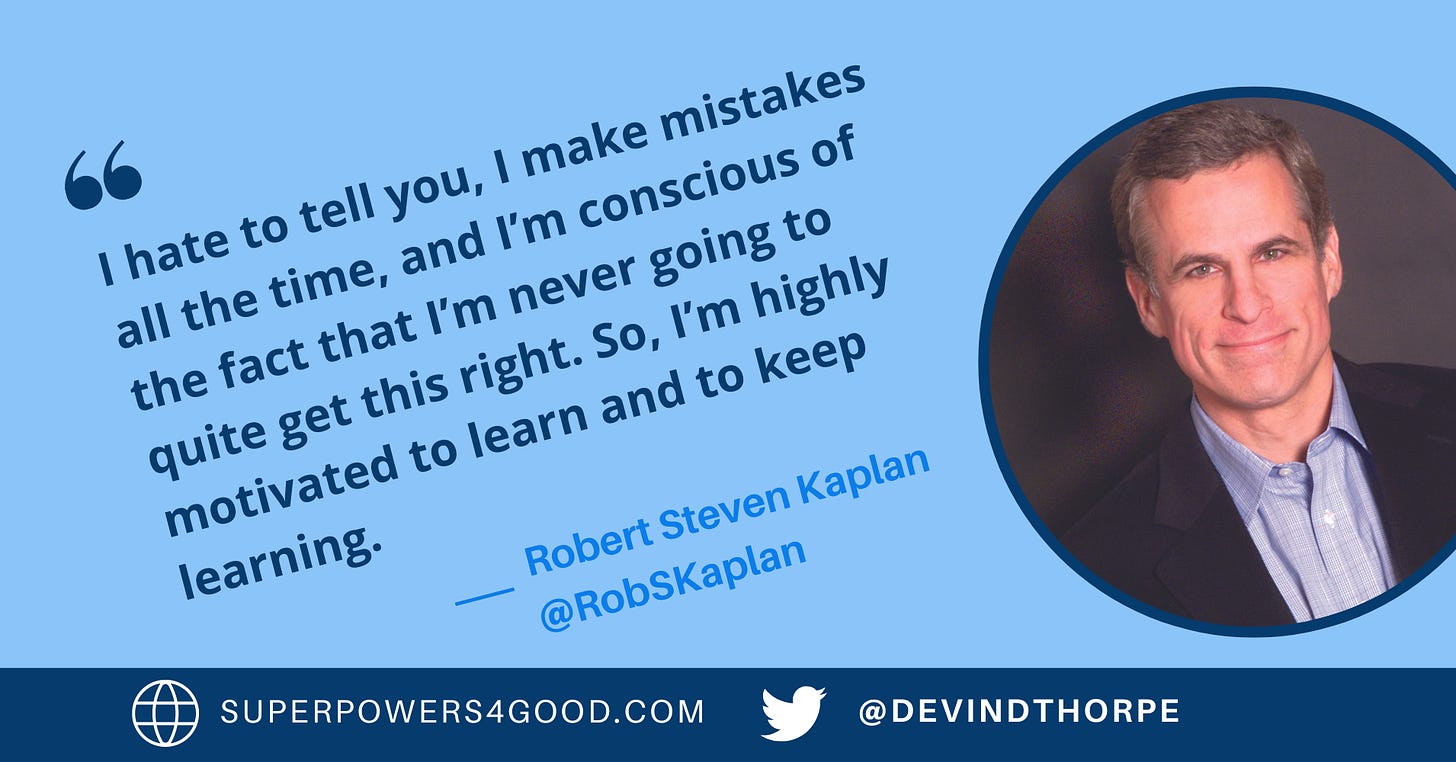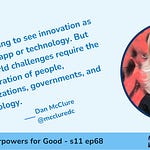Devin: What do you see as your superpower?
Rob: I don't know that I have a superpower. I wonder that every day. I think the most important thing that I've clung to over the years is a willingness and a desire to learn and to keep learning, to be self-critical.
Robert Steven Kaplan is the Draper Richards Kaplan Foundation (DRK) co-chair, a leading player in the accelerating venture philanthropy movement. He recently concluded his tenure as president and CEO of the Federal Reserve Bank of Dallas, giving him the bandwidth to visit with me while considering options for his next role.
Rob, who spent decades at Goldman Sachs, focuses much of his energy on income inequality.
“A number of the thorny problems that we face in the United States and around the world have to do with wealth and income inequality,” he says. “I think we’re increasingly realizing in the United States and around the world that the extent that we have more inclusive prosperity, it’s better for society, it’s better for everyone.”
The public sector can’t fix this alone. “Governments play a very critical role, but there are limits to what governments can do,” he says. “Sometimes, you need a social entrepreneur to get in and provide a disruptive solution that is going to address some of these issues.”
With his background in business, he sees opportunity in disruption. For two decades, DRK has been funding nonprofit innovators.
“At Draper Richards Kaplan, DRK, we probably see over 1000 proposals a year,” he says. “I’m always amazed by the ideas that social entrepreneurs have to provide a disruptive solution that we just wouldn’t have thought of.”
DRK backs those social entrepreneurs to help them scale their impact. The model hasn’t changed much over the years. The Foundation provides $100,000 for three years and appoints one of its managing directors to serve on the recipient’s board of directors.
“We act like an owner for the three years that we’re on the board,” Rob says. “The things we bore in on are helping the leader, the social entrepreneur or social entrepreneurs in the venture, build the team, refine the model, develop their own leadership skills.”
“The hardest thing to do is build out the board and help convince the social entrepreneur that while they’ve done this so far themselves, they need to build a team,” he says. “But part of building a team is to have a board of directors.”
Some nonprofits backed by the Foundation resist. “Some social entrepreneurs may see a board of directors as a bit of a burden,” Rob says. “‘You know, I don’t have time for this bureaucracy,’ and ‘Gee, we’ve done so well by ourselves.’ So, our job is to help them create a board that can coach them, coach their team, maybe see things they don’t see and address their blind spots.”
Boards can be helpful in another critical area. “You can leverage your board to help raise money. So you’re not doing it all by yourself,” he says.
Another area where DRK focuses attention is on ensuring that impact is measured as it scales.
“Metrics and measurement are not the be-all-end-all on the one hand. On the other hand, anecdotes are also not enough,” Rob says.
Rob applies his personal strength—I’ll call it his superpower—learning in every aspect of his work.
How to Develop Learning As a Superpower
“I hate to tell you, I make mistakes all the time, and I’m conscious of the fact that I’m never going to quite get this right,” Rob says. “So, I’m highly motivated to learn and to keep learning.”
Rob’s ability to see his deficiencies and need for continued learning helps him advance his career. He’s seen it most directly when transitioning from one employer to another. He explains:
I went from Goldman Sachs to Harvard Business School. I found very quickly that the same leadership approach that I took at Goldman, if I continued that at Harvard, they were going to shoot me. I had to adjust my style. It was a little bit jarring to me. But I learned quickly. You've got to understand the context of the situation you're in and adapt your style.
“Having made my own mistakes and gone through my own pain and suffering at points, it’s made me more—much more—empathetic,” Rob adds.
This admission enables him to offer some effective counsel. “There’s not a day that goes by where I don’t have a conversation with one or more leaders who are going through some type of hardship, challenge or often a transition. I think that one of the biggest things I’ve been able to do is tell them, ‘Boy, I’m struggling with that myself, and you’re not alone.’”
In this way, he gives people permission to own, acknowledge and learn from their mistakes. People at the top of their game, their class or their company aren’t accustomed to admitting their errors.
“If you’re a strong, confident person—the stronger, more confident you are, the more you should be willing to admit maybe you don’t know, or you were wrong,” Rob says. “Apologizing occasionally for screwing up, that kind of thing is okay.”
By following Rob’s example and advice, you can make learning a superpower that enables you to do more good.
























Developing the Vulnerability to Learn Is Empowering